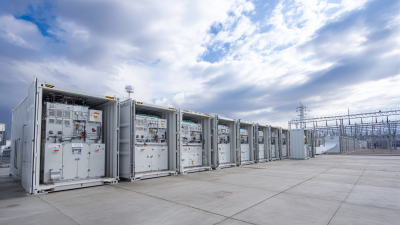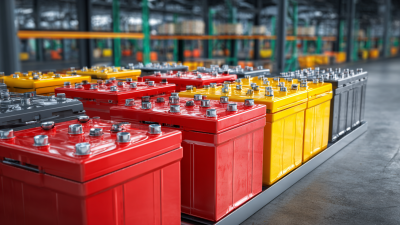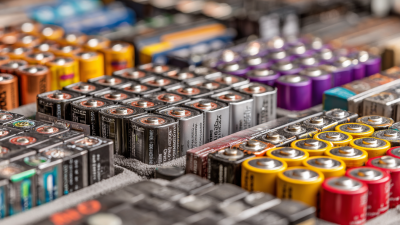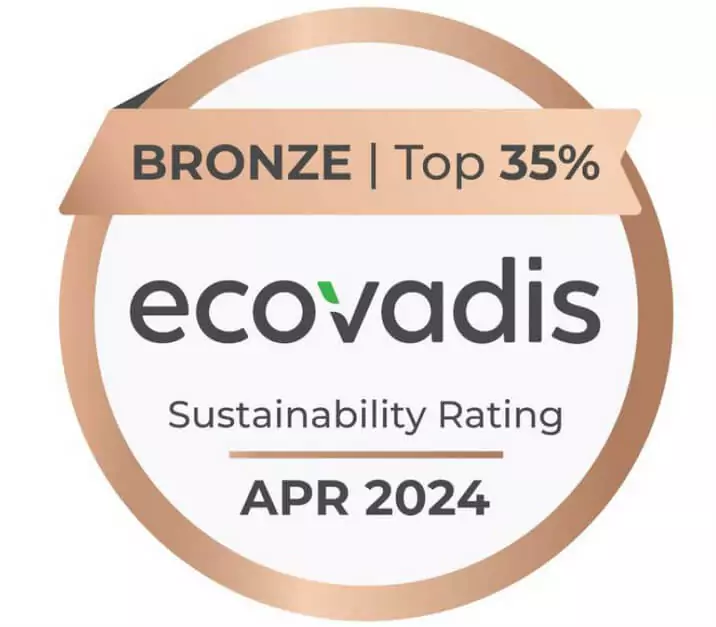Unlocking the Future: How Lithium Ion Car Batteries Are Revolutionizing Electric Vehicle Efficiency
The advent of lithium ion car batteries represents a pivotal moment in the evolution of electric vehicles (EVs), unlocking unprecedented levels of efficiency and performance. As consumers increasingly shift towards sustainable transportation, these batteries are at the forefront of this transition, setting new standards in range, charging times, and overall vehicle functionality. This innovation not only solves many of the limitations faced by traditional lead-acid batteries but also revolutionizes the way we think about energy storage and usage in automotive technology.

In exploring the transformative impact of lithium ion car batteries, it becomes clear that their advanced chemistry and design enable quicker energy transfer and longer lifespan, making them a cornerstone of modern electric vehicles. Manufacturers are now able to produce lighter, more efficient cars that appeal to a broader market, all while contributing to a greener future. As we delve deeper into this subject, we will uncover the ways in which lithium ion car batteries are reshaping the automotive landscape, enhancing the user experience, and addressing environmental concerns through smarter energy solutions.
The Evolution of Lithium-Ion Technology and Its Impact on EVs
The evolution of lithium-ion battery technology is becoming a pivotal factor in reshaping the electric vehicle (EV) landscape. With projections indicating that the lithium-ion battery market could grow by USD 405.1 billion from 2025 to 2029, driven largely by rising consumer electronics demand, the implications for EV efficiency are significant. Enhanced battery performance leads to improved range and reliability, which are critical for consumer adoption and the shift towards sustainable transportation. Innovative advancements, such as new battery chemistries, are not only enhancing performance but also addressing supply chain challenges.
Moreover, the importance of recycling lithium-ion batteries is gaining prominence as it alleviates the threat of material scarcity, which is particularly crucial amid China's aggressive EV ambitions. With the electric automotive transition deemed essential for achieving carbon neutrality, collaboration among recyclers, manufacturers, and regulators is vital. Recent advancements in recycling technologies are poised to create a circular economy, minimizing waste and ensuring a sustainable supply of materials for future battery production. As the industry grapples with these challenges, the transformative potential of lithium-ion batteries continues to unfold, promising a new era of efficiency and sustainability in electric vehicles.
Key Advantages of Lithium-Ion Batteries in Electric Vehicle Performance
Lithium-ion batteries have emerged as a cornerstone of electric vehicle (EV) performance, providing significant advantages that enhance efficiency and driving experience. One of the primary benefits of these batteries is their high energy density, allowing for more power to be stored in a smaller, lighter package. This not only translates into longer driving ranges but also improves acceleration, making electric cars not just items of convenience, but thrilling to drive.
Tips for maximizing your lithium-ion battery performance include regularly monitoring battery health through your vehicle's diagnostic settings. Ensuring optimal charging practices, such as avoiding extreme temperatures and not letting the battery fully deplete, can also extend the lifespan of your battery. Additionally, utilizing regenerative braking systems can help recapture energy and improve overall efficiency, providing an extra edge in performance.
Another key advantage of lithium-ion batteries is their rapid charging capability. With advancements in fast-charging technology, many EVs can now achieve significant battery replenishment in just 30 minutes. This convenience addresses range anxiety, allowing drivers to seamlessly integrate electric vehicles into their daily lives. To further enhance battery longevity, try to charge your vehicle overnight at home, tapping into off-peak electricity rates while ensuring your battery is always ready when you need it.
Comparative Analysis: Lithium-Ion vs. Other Battery Technologies
Lithium-ion batteries have become the cornerstone of modern electric vehicle (EV) technology, surpassing other battery types in multiple aspects. A comparative analysis reveals that lithium-ion batteries offer superior energy density and efficiency compared to alternatives like lead-acid or nickel-metal hydride batteries, making them more suitable for the demanding requirements of electric vehicles. Recently, new advancements in fast charging technologies have been developed to optimize lithium-ion battery performance, enhancing their longevity and safety during operation. This positions lithium-ion as a leader in the pursuit of efficient EV energy solutions.
Further research highlights the ongoing developments in battery technologies, including comparisons of advanced lithium-ion cells that showcase notable variations in design and efficiency. Studies examining the Tesla 4680 and other advanced lithium-ion cells indicate a shift toward enhanced structural characteristics that significantly improve recycling efficiency and performance. Meanwhile, the rise of solid-state batteries presents a future challenge for lithium-ion technologies, as these newer systems promise even greater energy density and safety advantages. The evolution of battery materials and designs not only impacts the effectiveness of electric vehicles but also plays a crucial role in shaping the competitive landscape of the entire battery market.
Future Innovations in Lithium-Ion Chemistry for Enhanced Efficiency
Innovations in lithium-ion chemistry are paving the way for a new generation of electric vehicle (EV) batteries, significantly enhancing their efficiency and overall performance. Researchers are exploring alternative materials, such as silicon anodes and solid-state electrolytes, which promise higher energy density and faster charging times compared to traditional graphite-based systems. These advancements not only improve the range of electric vehicles but also contribute to longer battery life, addressing one of the critical concerns for consumers.
Moreover, developments in nanotechnology are enabling the creation of batteries with improved thermal management properties, reducing the risk of overheating and enhancing safety. By manipulating materials at the molecular level, scientists are able to design batteries that can charge more rapidly while maintaining stability. As these innovations continue to unfold, the potential for lithium-ion technology to power electric vehicles effectively and sustainably becomes increasingly apparent, driving the automotive industry toward a more electrified and efficient future.
Unlocking the Future: How Lithium Ion Car Batteries Are Revolutionizing Electric Vehicle Efficiency
| Battery Type |
Energy Density (Wh/kg) |
Charge Time (hours) |
Cycle Life (charges) |
Cost (USD per kWh) |
| Lithium Nickel Manganese Cobalt (NMC) |
150 |
1-2 |
1000 |
150 |
| Lithium Iron Phosphate (LFP) |
90 |
4-6 |
2000 |
120 |
| Lithium Cobalt Oxide (LCO) |
200 |
2-3 |
500 |
180 |
| Lithium Manganese Oxide (LMO) |
120 |
3-4 |
1000 |
160 |
| Solid-State Batteries |
300 |
1-2 |
2500 |
200 |
Sustainability Challenges and Solutions in Lithium-Ion Battery Production
The production of lithium-ion batteries presents significant sustainability challenges that must be addressed to ensure the long-term viability of electric vehicles (EVs). One of the pressing issues lies in the raw material sourcing, with lithium, cobalt, and nickel extraction often leading to environmental degradation and social conflicts. Additionally, the manufacturing processes can be resource-intensive, further exacerbating the carbon footprint. To counter these challenges, the industry is increasingly focusing on recycling as a crucial strategy to recover valuable materials and reduce environmental impact. Innovations in recycling technologies can close the loop in the lithium-ion battery supply chain, thereby promoting a circular economy approach.
In parallel, recent developments are exploring alternative battery chemistries, such as sodium-ion batteries, which could alleviate some of the pressure associated with lithium sourcing. By diversifying energy storage technologies, the industry aims to bolster supply chain resilience and diminish reliance on finite resources. Furthermore, investment in research is crucial for the evolution of sustainable battery manufacturing practices, including the use of eco-friendly materials and efficient production methods. These strategies not only address the immediate sustainability concerns but also pave the way for a more resilient and environmentally friendly future for electric vehicles.
Electric Vehicle Efficiency: Lithium-Ion Battery Capacity Over Years










